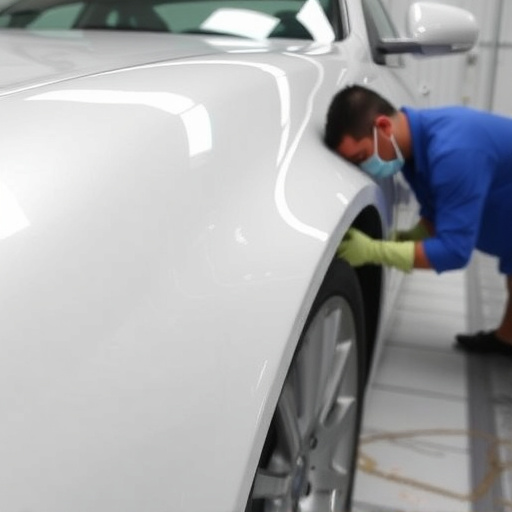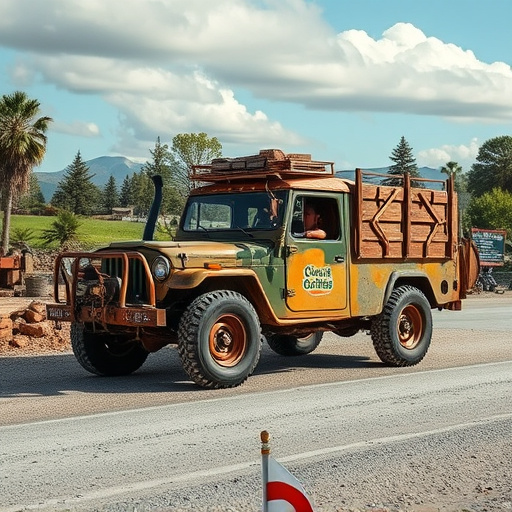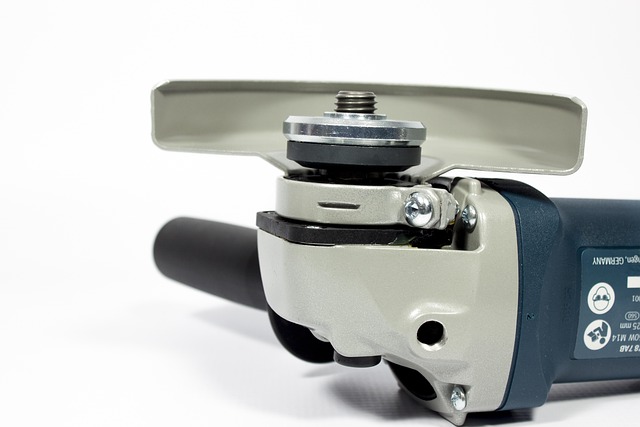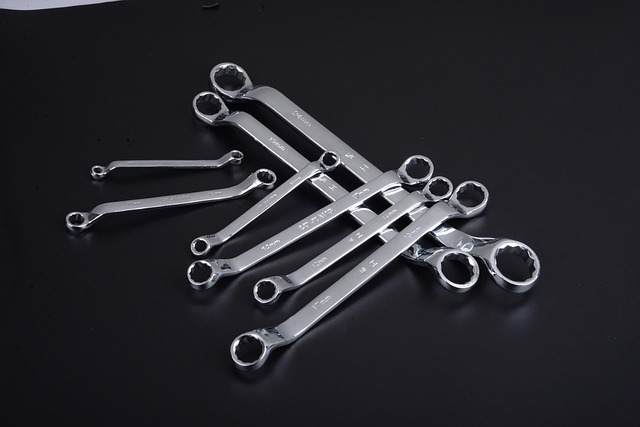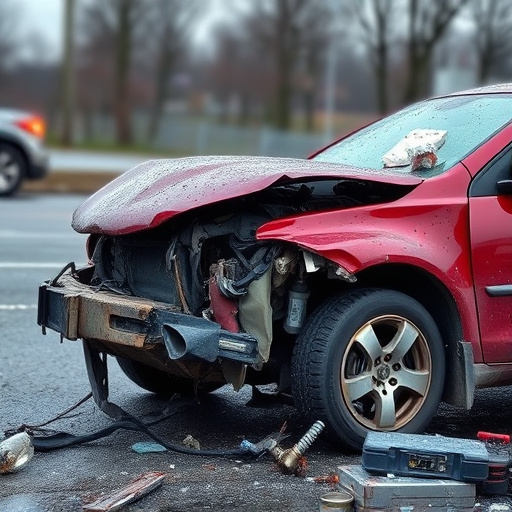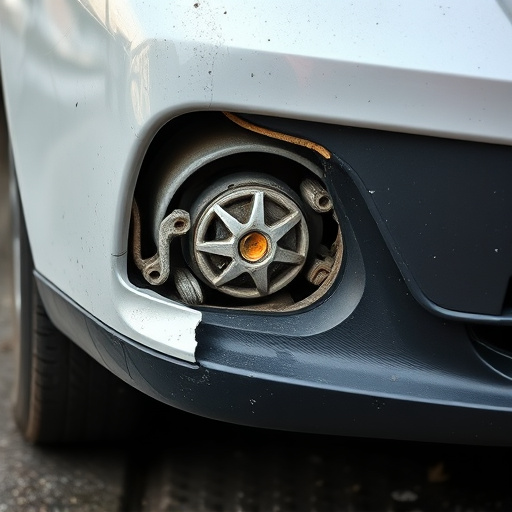Rural auto body shops face unique challenges including logistically complex repairs, increased costs, skilled labor shortages, and smaller customer bases. They serve as community resilience hubs, integrating with emergency services to provide swift response times for accidents in challenging road conditions. Efficient strategies include communication networks with local emergency services, internal triage systems, staff training, regular drills, and community collaboration to handle emergencies promptly, prioritizing safety and minimizing damage.
In many remote areas, rural auto body shops play a vital role in providing essential vehicle repair services. However, they face unique challenges due to their isolation. This article explores the critical need for emergency services at these shops, delving into the specific obstacles and strategies for effective response. We examine how swift action in rural settings can mean the difference between an manageable incident and a life-threatening emergency, highlighting the importance of preparedness and community support for these vital, often overlooked, businesses.
- Understanding Rural Auto Body Shops' Unique Challenges
- The Essential Role of Emergency Services in Rural Settings
- Strategies for Efficient Emergency Response at Rural Shops
Understanding Rural Auto Body Shops' Unique Challenges
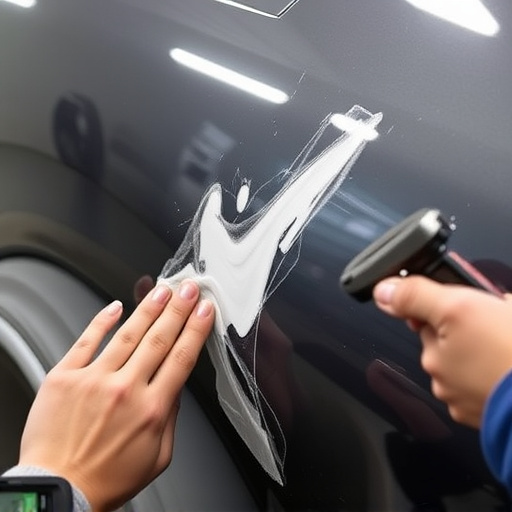
Rural auto body shops face unique challenges that differ from their urban counterparts. One of the primary difficulties is accessibility and transportation. In remote areas, getting a car to a shop for repairs can be logistically complex, often requiring specialized equipment or arrangements. This delays the repair process and increases costs for both businesses and customers.
Furthermore, these shops struggle with a shortage of skilled labor. With limited resources and smaller customer bases, attracting and retaining trained professionals can be challenging. Consequently, rural auto body shops often have to rely on a smaller pool of experienced mechanics, impacting their capacity to handle complex car bodywork and automotive repair services.
The Essential Role of Emergency Services in Rural Settings
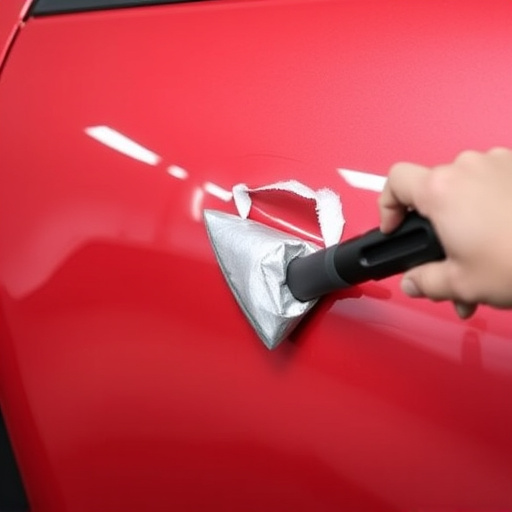
In rural areas, where populations are sparse and distances between communities vast, emergency services play a pivotal role in ensuring the well-being and safety of residents. For small towns nestled within these regions, including those hosting rural auto body shops, access to immediate medical aid can be a matter of life and death. Moreover, given the limited resources and infrastructure, these emergency services often double as first response teams for non-medical emergencies, such as automotive accidents, which are not uncommon in remote settings due to challenging road conditions and sparse traffic signals.
The presence of well-equipped emergency services at or near rural auto body shops is thus crucial. In the event of a collision damage repair or auto glass repair incident, these services can swiftly arrive on the scene, providing immediate assistance to injured parties before professional mechanics begin their work. This seamless integration not only enhances safety but also ensures that the process of automotive collision repair and subsequent restoration of vehicles is carried out without compromising public welfare, making rural auto body shops more than just repair centers—they become vital hubs for community resilience and emergency preparedness.
Strategies for Efficient Emergency Response at Rural Shops

In rural auto body shops, where immediate access to emergency services might be limited, efficient response strategies are paramount. One key approach is to establish robust communication networks. Shops should have direct lines to local police, fire departments, and ambulance services, ensuring swift activation of resources during emergencies. Additionally, implementing a well-organized internal system for triaging incidents can significantly enhance response times. This involves training staff to assess situations quickly, determining the level of urgency, and alerting the appropriate personnel or services accordingly.
Regular drills and simulations further bolster emergency preparedness. Practicing various scenarios, from vehicle fires to accidents involving hazardous materials, allows shop teams to refine their coordination and decision-making skills. Collaborating with nearby rural communities can also be beneficial, fostering a culture of mutual aid where resources and expertise are shared during critical situations. These proactive measures ensure that rural auto body shops are equipped to handle emergencies promptly, prioritizing customer safety and minimizing potential damage or loss.
Rural auto body shops face distinct challenges, but integrating efficient emergency services can ensure swift responses and save lives. By understanding their unique context and implementing tailored strategies, these shops can become vital community hubs, showcasing the importance of preparedness in remote settings. This approach not only enhances safety but also strengthens the resilience of rural communities, where every second counts.


